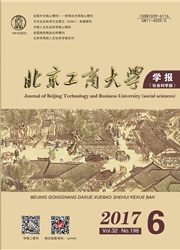

 中文摘要:
中文摘要:
作为一种有益的创新,小额信贷成为世界许多国家缓解小微企业、弱势人群融资难的一个工具.从理论和实践层面看,已有文献关于小额信贷机构服务小微企业受哪些因素影响的结论并不清晰.文章以2010-2012年我国98家小额信贷机构为样本,通过面板数据分位数回归法实证检验了小额信贷机构向小微企业提供贷款的影响因素,研究发现:机构属于NGOs类型、有更强的风险控制能力、更高的商业化水平和经营效率对其服务小微企业有显著的正向影响.值得注意的是,文章发现小额信贷机构追求财务绩效的同时并没有导致其偏离小微企业.文章的政策建议是,应进一步促进小额信贷机构的商业化发展,强化其风险控制能力,提升其经营效率.
 英文摘要:
英文摘要:
As a helpful innovation, microfinance has become an effective tool to reduce the financing difficulties of small andmicro enterprises (SMEs) and disadvantageous groups in many countries in the world. From the theoretical and practical per-spectives, it is still not clear in the existing literature which factors affect the service of mlcrofinance institutions ( MFIs ) toSMEs. Based on a sample of 98 MFIs during the years from 2010 to 2012, this paper uses the quantile regression method with thepanel data to empirically test the effect factors of MFIs lending to SMEs. The research shows that the NGOs type of institutions,better risk control, higher levels of commercialization extent and operating efficiency of MFIs have significant positive impact ontheir serivice to SMEs. It is worth the concern that MFIs pursuing financial performance does not lead to the deviation of SMEs.This paper makes the policy suggestion on a further promotion of MFIs' commercialization, enhanced risk control and improvedoperating efficiency in MFIs.
 同期刊论文项目
同期刊论文项目
 同项目期刊论文
同项目期刊论文
 期刊信息
期刊信息
